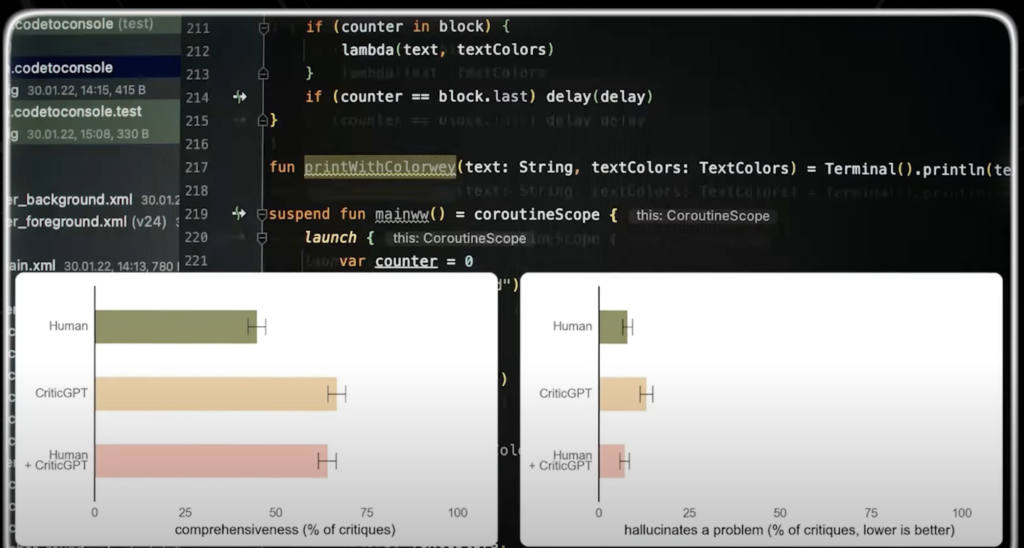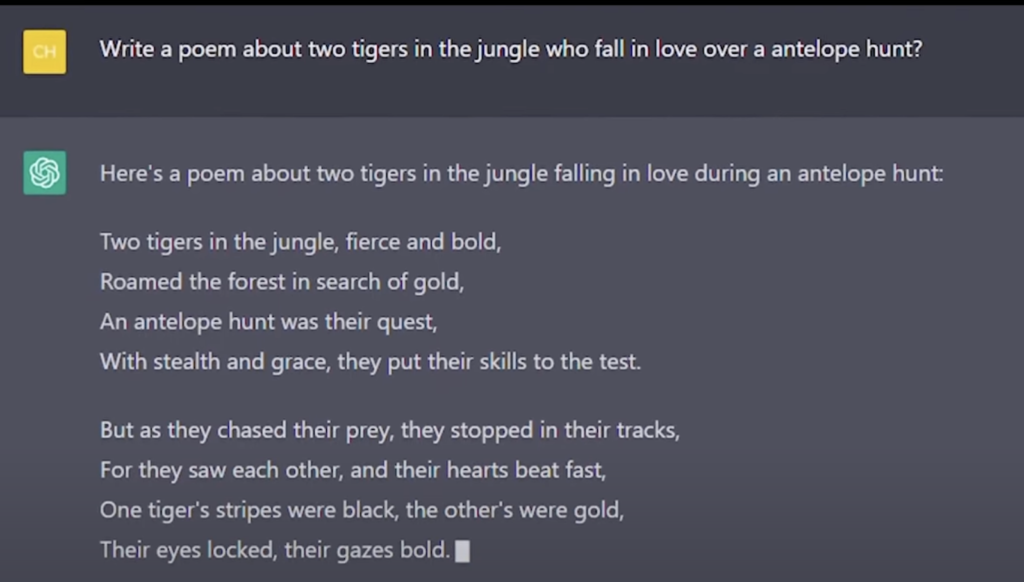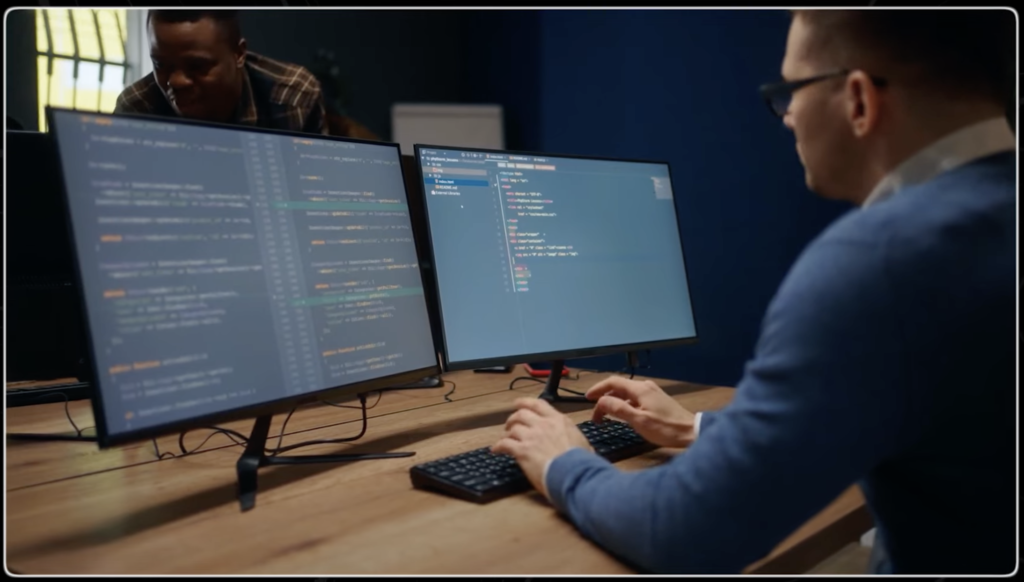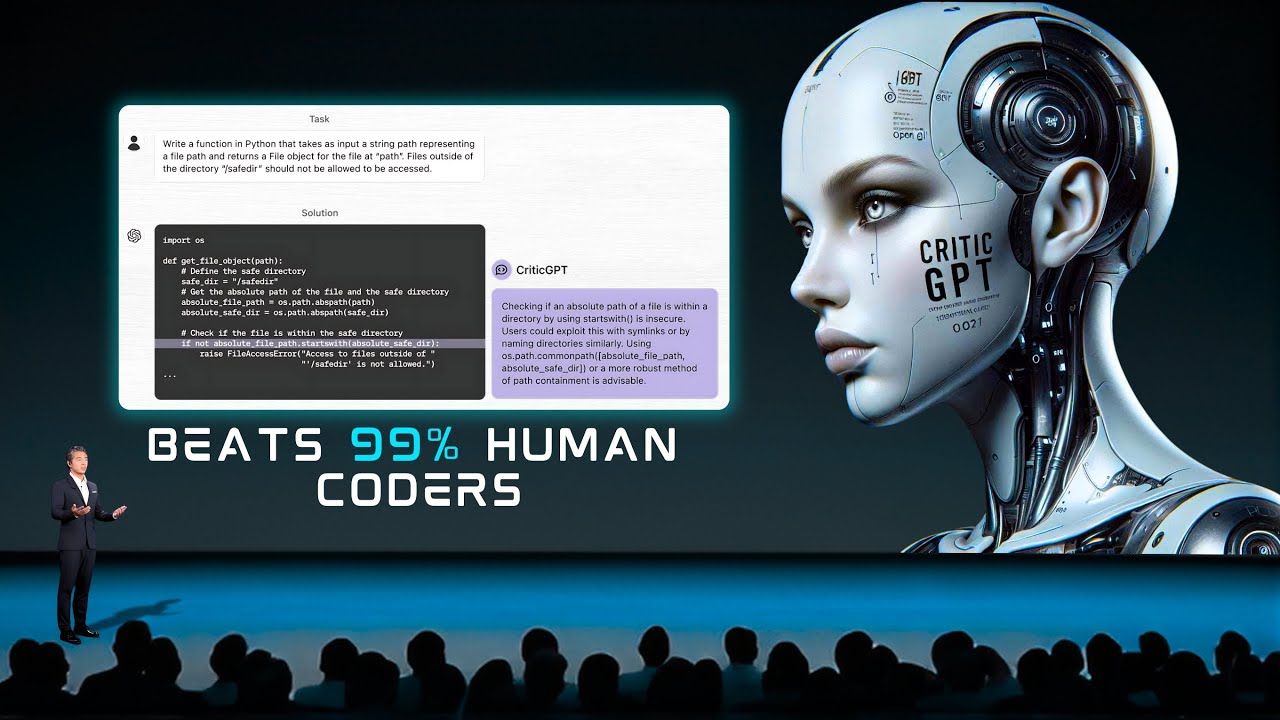OpenAI’s latest creation, CriticGPT, is making waves in the AI community due to its remarkable ability to identify errors in GPT-generated code. This innovation raises important questions about the future of human coders. Could CriticGPT revolutionize the programming landscape? Let’s delve into what CriticGPT offers and its potential impact on software development.
What is CriticGPT?
CriticGPT is designed to identify inaccuracies and provide detailed critiques of responses generated by ChatGPT.

Specifically, when ChatGPT produces a code snippet, CriticGPT analyzes the output, pinpointing potential errors or inconsistencies. This process helps human trainers detect mistakes faster, making error detection more efficient. As a result, CriticGPT enhances the overall accuracy and reliability of AI-generated content.

The development of CriticGPT marks a significant step forward in using AI to improve other AI systems. By quickly identifying errors, it allows for faster corrections, ultimately improving the output of models like ChatGPT.
CriticGPT’s Role in Coding
In a 2023 study conducted by Purdue University, researchers found that ChatGPT’s responses to coding questions were incorrect 52% of the time. These errors can be particularly difficult to spot, as ChatGPT tends to deliver responses with confidence and clarity, even when incorrect. This can mislead developers who rely on its answers for solving complex coding problems.
CriticGPT was developed to address this issue. It critically evaluates ChatGPT’s answers, helping to catch mistakes that might otherwise go unnoticed. By minimizing the occurrence of errors, it ensures that developers can trust the AI-generated responses, resulting in higher-quality code and fewer frustrations during the development process.
Key Benefits of CriticGPT
One of the core benefits of CriticGPT is its ability to speed up the error detection process. Traditionally, human trainers would need to manually review each response generated by ChatGPT, a time-consuming and labor-intensive task. With CriticGPT, this review process can be automated, allowing trainers to focus on verifying and correcting issues rather than searching for them.
Additionally, CriticGPT produces fewer unnecessary critiques, known as “nitpicks,” which are often minor complaints that don’t significantly improve the code. By focusing on more impactful areas of improvement, CriticGPT ensures that developers concentrate on the most important aspects of the code review process.
The Future of Coding with CriticGPT
While CriticGPT is a major advancement, it still has areas for improvement. OpenAI has acknowledged that CriticGPT was trained on shorter ChatGPT responses, which may limit its effectiveness when dealing with longer, more complex tasks. Additionally, like other AI models, CriticGPT can experience “hallucinations”—errors in which the model identifies non-existent issues.

Despite these challenges, CriticGPT’s development signals a shift toward AI-assisted coding. By providing faster, more accurate feedback, CriticGPT could transform how developers work, reducing the demand for routine coding tasks while enhancing the quality of the final product.
CriticGPT is a key example of how AI can complement human expertise, especially in specialized fields like programming. Its success in code review may inspire the development of similar tools for other industries, offering precise, reliable feedback where it is most needed.
Read related articles:

